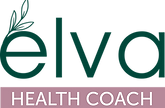Living with Endometriosis — My Journey & How I Support Others
- Elva O'Conaire
- Jul 15, 2025
- 4 min read
I’ve been living with endometriosis for 20 years, which means I sometimes experience very heavy and painful periods. Endometriosis is a chronic inflammatory disease that can cause a wide range of symptoms including fatigue, bloating, pain, and migraines. It’s not always visible to others, and some days are much harder than they look on the outside.
Fortunately, my gynaecologist referred me to physiotherapy at St. John’s Hospital in Limerick, and the support I’ve received there has been truly life-changing. I honestly didn’t realise physiotherapy could help with endometriosis pain, but it has made a massive difference for me—especially in learning how to work with my pelvic floor and release tension in the body. I’ve felt more in tune with myself since starting, and it’s helped me understand my pain better, not just treat it.
Living with endometriosis can feel overwhelming at times, but finding the right support—both medically and through small daily practices—has made it more manageable and less lonely.

What Helps Me Most
These are the small things that make a big difference in my day-to-day life. I’ve found them to be practical and grounding, especially when my symptoms flare.
Gentle Movement
Even on tough days, gentle movement really helps. I’ve found that short walks ease pain, clear my head, and support digestion too. On low-energy days, even stretching or slow movement around the house helps shift tension. I’ve learned not to push through but to tune in and move in ways that feel supportive.
Eating Well
Changing how I eat has made a big difference. I focus on whole foods and try to reduce processed sugar and inflammatory foods where I can. Eating consistently—not skipping meals—really helps with energy, mood, and fatigue. I don’t follow a rigid plan, but I’ve noticed that what and when I eat directly impacts how I feel. Warm, cooked meals work well for me.
Rest & Sleep
Getting quality sleep and giving myself permission to rest—especially around my cycle—is essential. Fatigue can be one of the hardest parts of endo, and I’ve learned that pushing through usually backfires. Rest isn’t lazy—it’s part of how I care for my body.
Hydration & Heat
Drinking enough water is one of those small things that makes a big difference. I also use heat therapy regularly—a hot water bottle, warm bath, or heat pad—especially for cramps, pelvic pain, or migraines. These simple comforts soothe pain and help calm my nervous system.
Nervous System Support
One of the biggest shifts for me has been learning to support my nervous system. When I feel overwhelmed or in pain, calming practices like slow breathing, mindfulness, or taking a few quiet minutes to lie down help more than I ever expected. They don’t fix everything, but they help me feel steadier.
A Turning Point: Physiotherapy
Being referred to physiotherapy by my gynaecologist was a turning point. I had no idea physio could help with endometriosis, but it’s made such a difference—especially in learning to release tension in my pelvic floor and support my nervous system.
My physiotherapist has also supported me with my C-section scar. Even though it had been seven years since my last child, one side of the scar remained very sore. With gentle, hands-on care, she worked to release restrictions and tension in that area, giving me real relief. I’ve also been shown how to support this at home with simple tools like a spiky massage ball. It’s made a huge difference to how I feel.
How I Support Others
As a Health Coach, I support women living with endometriosis by exploring small, manageable changes that work alongside their medical care—simple things that may help them feel more supported, balanced, and steady in daily life.
My role isn’t to diagnose or treat—it’s to walk alongside you. I offer encouragement, practical support, and space to figure out what feels right for you, wherever you are in your journey.
Together, we might explore:
Eating more consistently throughout the day to support energy and reduce overwhelm
Moving your body gently, without pressure—even stretching or short walks can help
Supporting better sleep with small habits that promote rest
Creating space for rest and nervous system care, especially during fatigue or pain
Building calming practices like deep breathing or mindful pauses in the day
Spending time with people who support you—family, friends, or community
Sometimes the most powerful changes are the simplest ones. When you’re living with ongoing symptoms, it’s easy to feel overwhelmed. Having someone walk beside you—someone who listens, supports, and helps you feel seen—can make all the difference.
Final Word
If my story resonates, know you’re not alone—and help can come through small steps and the right kind of support. Endometriosis affects 1 in 10 people, and while each experience is different, you deserve care that works for you.
If you'd like to learn more or explore working together, you can email me at info@elvahealthcoach.com or book a free consultation at www.elvahealthcoach.com
Further Support & Resources
Endometriosis Association of Ireland – www.endometriosis.ie
Michelle Lyons – Pelvic Health Physiotherapy & Education – https://celebratemuliebrity.com/
Endometriosis UK – www.endometriosis-uk.org
Mayo Clinic – Endometriosis Overview – www.mayoclinic.org/diseases-conditions/endometriosis




Comments